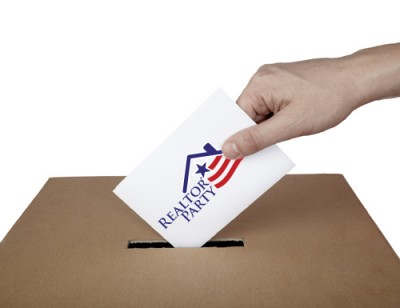
NAR’s Realtor Party was quite active in 2012, but how successful was it truly in meeting its lofty aims?
The Realtor Party was something new from the National Association of Realtors (NAR). Though the famously democratic group was already one of the most active lobbying groups in the U.S., the Realtor Party made the association’s political influence official, with members of the party committing to: vote for “Realtor Party candidates,” meaning candidates at the local, state and national level who support the same issues as NAR; act upon Realtor Party initiatives; and invest in RPAC, NAR’s political action committee.
Though the Realtor Party generated controversy, with arguing that it sought to override personal political convictions for the sake of the real estate industry, it’s worth taking a look at 2012 and asking: how did the Realtor Party actually perform in 2012?
Realtor Party in 2012: A Raging Success?
Of course, NAR has pointed out a number of success the Realtor Party can take credit for, among them:
- Nearly 3,000 program requests from local Realtor boards and state associations for Realtor-related issues, according to Bill Malkasian, NAR’s vice president of strategic political planning, who spoke of the Realtor Party to AGBeat.
- Nearly $28 million in direct and indirect funds to local/state associations for Realty Party programming.
- Realtor Party programming, Malkasian said, encompassed the following: 28 percent for building Realtor Party strength; 32 percent for advocacy; 22 percent for raising RPAC money; 17 percent for community outreach; and 1 percent for game changer.
- For 2013, Malkasian told AGBeat, the Realtor Party’s emphasis will be “on legislative issues at state levels and ballot issues at local levels of government.”
Realtor Party in Chicago
AGBeat also drew attention to a ballot initiative in Louisiana that the Realtor Party successfully passed, which amends the state’s constitution to prohibit real estate transfer taxes. How did the Realtor Party’s initiatives, though, fair in Chicagoland?
Interestingly, the Realtor Party’s successes in Chicago’s Congressional elections were a bit mixed. Though Peter Roskam (R), Luis Gutierrez (D) and Jan Schakowsky, all of whom received at least $9,000 in campaign funds from NAR, both Robert Dold (R) and Judy Biggert (R), who received similar Realtor support, lost their respective races, with Biggert only receiving 41.9 percent of the vote.
Aside from specific candidates, though, NAR does do a good job supporting housing-related issues, a focus that aids it in its lobbying efforts, explained Carmen Rodriguez, an agent with Coldwell Banker in Edgebrook.
“NAR does an outstanding job of moving forward an agenda that it believes benefits its constituents. NAR’s political action group supports issues – rather than ideologies – that matter to homeownership,” Rodriguez said. “If we had more issues-based advocacy in our political arena I think housing, like education and the environment, would have even greater priority in places where decisions are made and money is spent.”
But what are your thoughts? Does housing get the proper attention, given NAR and the Realtor Party’s efforts, or did they not perform up to par in 2012?